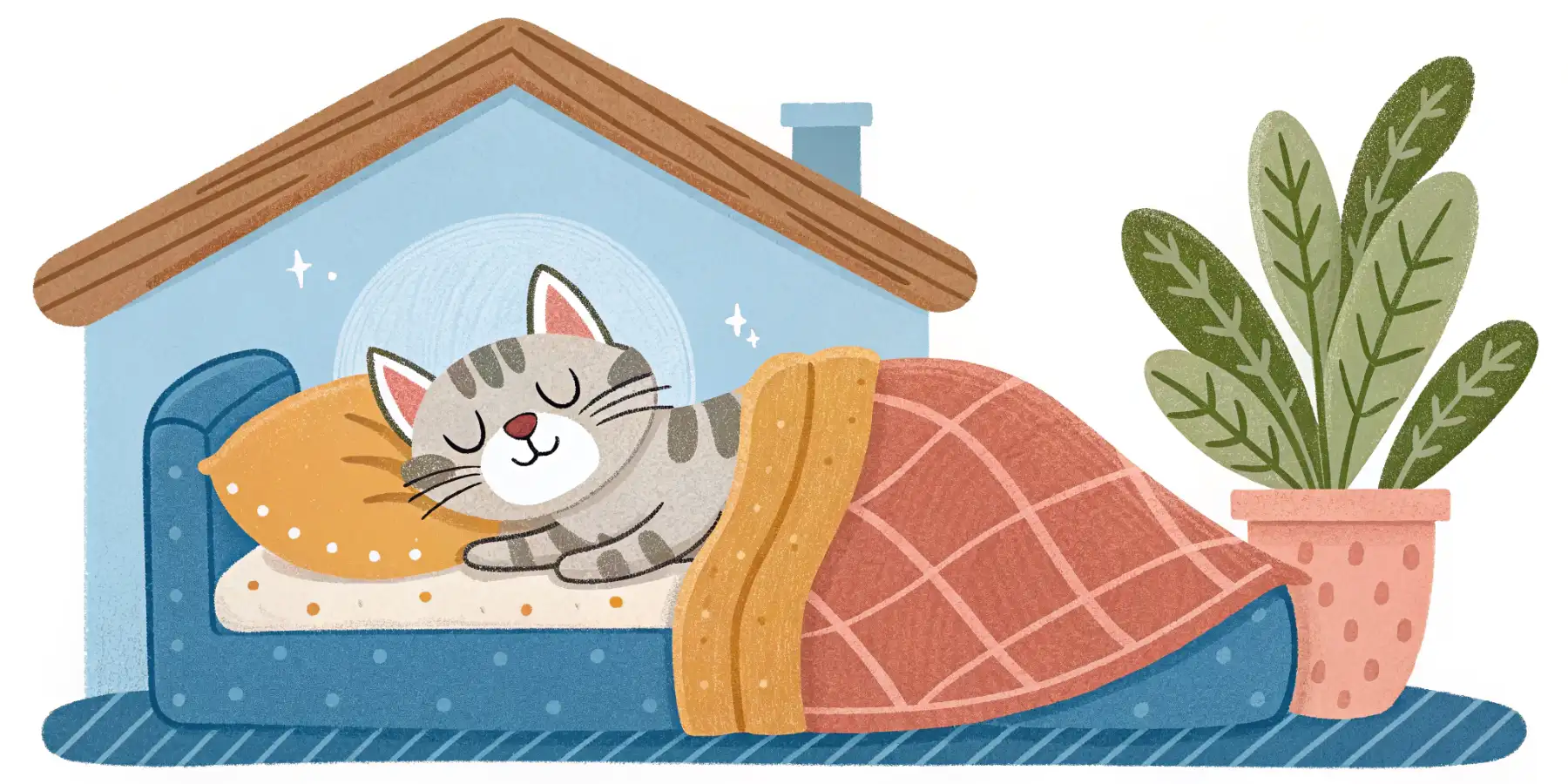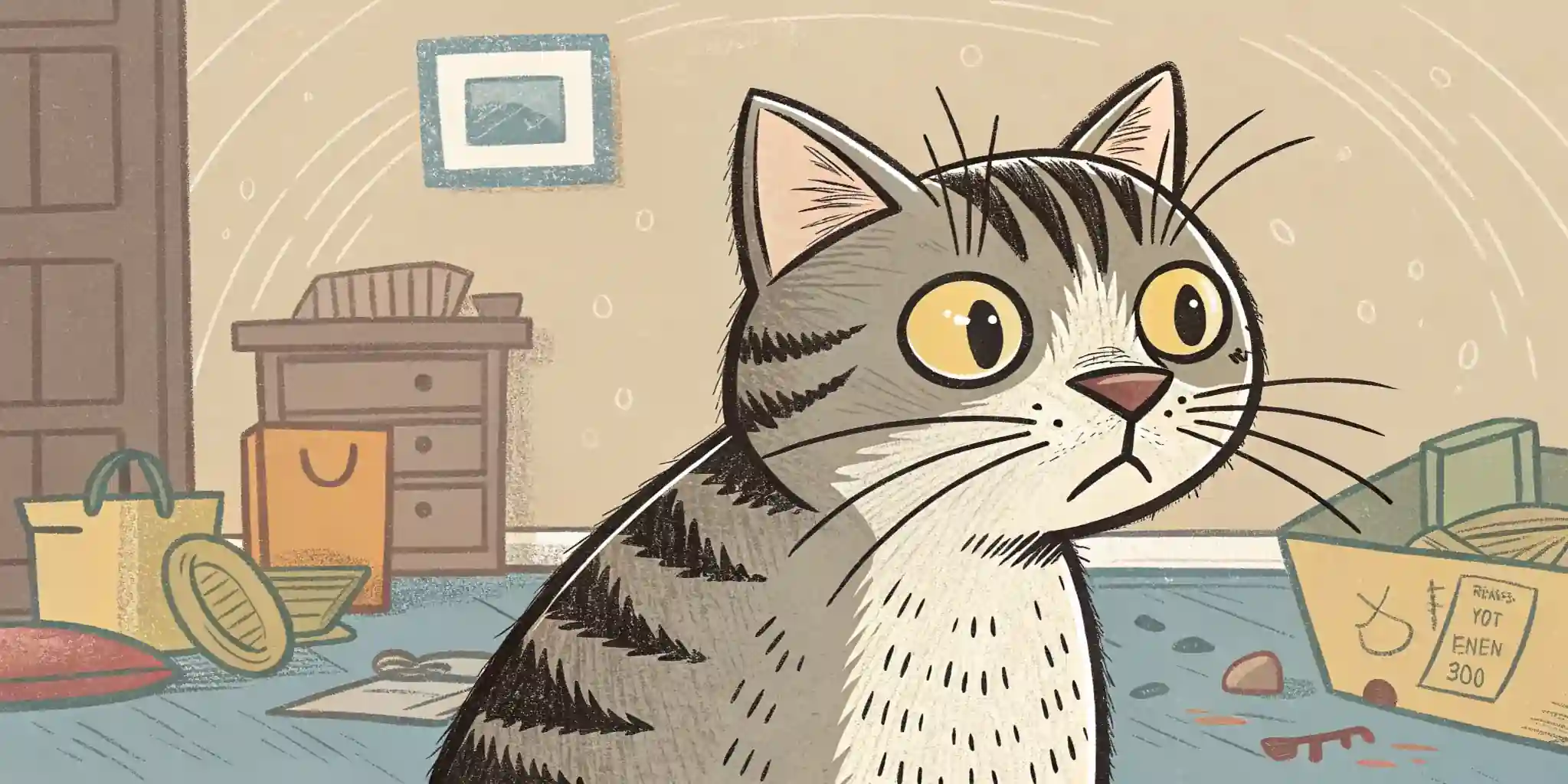
Stressed Cat? Spot the Signs & Help Now!
Is your cat stressed? 😿 Learn to spot the subtle signs of feline stress & help your furry friend feel safe & happy! Click for solutions!
Recognizing Signs of Stress in Cats: Causes and Solutions
As a pet care expert with years of experience working with feline friends, I can tell you that cats are masters of disguise. They’re incredibly good at hiding pain and discomfort, and that includes stress. This makes it crucial for us, as responsible cat owners, to become skilled detectives, capable of recognizing the subtle signs that our furry companions are feeling overwhelmed. It’s a vital part of providing optimal feline stress management and ensuring our cats live happy, healthy lives.
Understanding Feline Stress
Cats are creatures of habit. They thrive on routine and predictability. Any disruption to their environment or daily schedule can trigger stress. Unlike dogs who might outwardly display their anxiety with barking and tail-chasing, cats often internalize their stress, leading to more subtle behavioral changes. Learning to decipher these changes is key to addressing the underlying issues and promoting cat anxiety relief.
 Image: A stressed cat seeking refuge under a bed, a common sign of anxiety in felines.
Image: A stressed cat seeking refuge under a bed, a common sign of anxiety in felines.
Common Signs of Stress in Cats
Recognizing cat stress symptoms can be challenging, as they often mimic other illnesses. However, here are some key indicators to watch out for:
- Changes in Litter Box Habits: This is a big one. Stressed cats might start urinating or defecating outside the litter box, even if they’re normally perfectly litter trained. They may also experience diarrhea or constipation. This is why monitoring your cat’s litter box habits is so important!
- Increased Vocalization: While some cats are naturally chatty, excessive meowing, hissing, or growling can indicate distress. Pay attention to the context of the vocalization.
- Changes in Appetite: Stress can manifest as either a loss of appetite or, conversely, overeating. Keep an eye on your cat’s food bowl and note any significant shifts in their eating habits.
- Excessive Grooming: Cats are meticulous groomers, but stressed cats may over-groom to the point of causing bald patches or skin irritation.
- Withdrawal or Hiding: A cat who suddenly becomes reclusive and spends most of their time hiding might be feeling anxious or stressed.
- Aggression: A normally docile cat might become irritable or aggressive when stressed. This aggression can be directed towards people, other pets, or even inanimate objects. In my experience, this is often a sign of feeling trapped or overwhelmed.
- Restlessness or Pacing: Some cats will exhibit restless behavior, pacing back and forth or struggling to settle down.
- Changes in Sleep Patterns: Cats usually sleep a lot, but changes in their usual sleep schedule, such as sleeping more or less than usual, can be a sign of stress.
- Increased Startle Response: Cats are always aware of their surroundings, but a stressed cat might be more easily startled by noises or movements.
Common Causes of Stress in Cats
Identifying the source of stress in cats is essential for addressing the problem effectively. Here are some common culprits:
- Changes in the Environment: Moving to a new home, redecorating, or even rearranging furniture can be stressful for cats.
- New Pets or People: Introducing a new pet or a new person into the household can disrupt a cat’s established social hierarchy and territory.
- Loud Noises: Construction, fireworks, or even loud music can trigger anxiety in sensitive cats.
- Lack of Enrichment: Boredom and lack of mental stimulation can lead to stress. Cats need opportunities to play, explore, and engage their natural hunting instincts. I believe that interactive toys and puzzle feeders are crucial for keeping cats mentally stimulated.
- Conflict with Other Cats: Multi-cat households can be stressful if the cats don’t get along. Resource guarding (food, water, litter box) is a common cause of conflict.
- Visits to the Veterinarian: Many cats experience anxiety when visiting the vet. The unfamiliar smells, sounds, and handling can be overwhelming.
- Travel: Traveling, whether in a car or airplane, can be a major source of stress for cats.
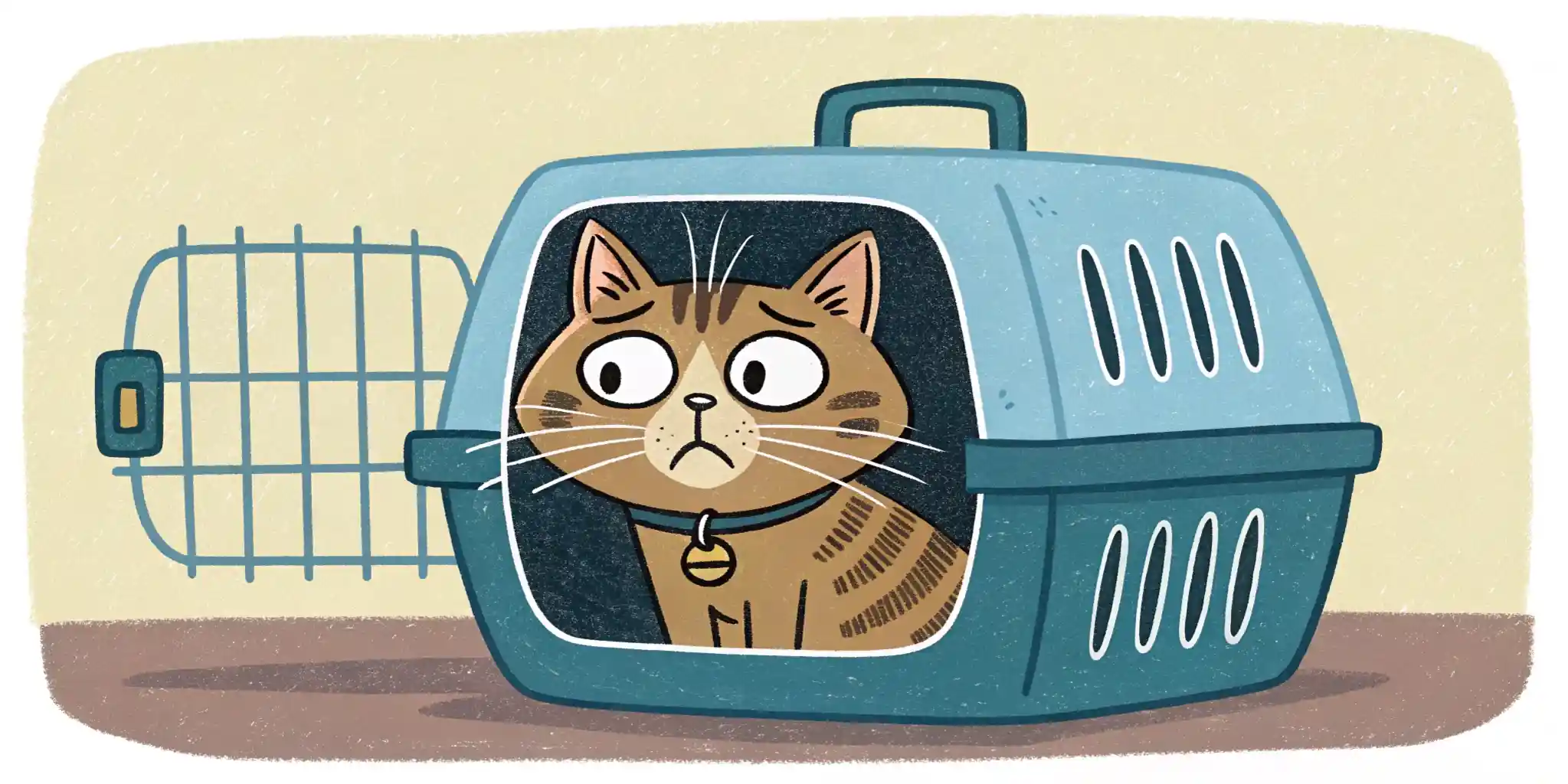 Image: A frightened cat inside a carrier, depicting the stress associated with travel or vet visits.
Image: A frightened cat inside a carrier, depicting the stress associated with travel or vet visits.
Solutions for Managing Stress in Cats
Once you’ve identified the potential causes of stress, you can start implementing strategies to help your cat cope. Here are some effective solutions for managing feline stress:
- Provide a Safe Space: Ensure your cat has a quiet, comfortable place to retreat to when they feel overwhelmed. This could be a cat bed, a cardboard box, or even just a secluded corner of a room.
- Maintain a Consistent Routine: Feed your cat at the same time each day, clean the litter box regularly, and stick to a predictable schedule as much as possible.
- Enrichment: Provide plenty of toys, scratching posts, and climbing structures to keep your cat entertained and mentally stimulated. Rotate toys regularly to keep things interesting.
- Feliway Diffusers: Feliway is a synthetic feline pheromone that can help reduce stress and anxiety in cats. Diffusers are available that plug into an electrical outlet and release the pheromone into the air.
- Increase Vertical Space: Cats feel safer and more secure when they have access to elevated surfaces. Install cat trees, shelves, or window perches to give your cat more vertical territory.
- Manage Multi-Cat Households: Ensure each cat has their own food and water bowls, litter box, and scratching post. Provide plenty of space and avoid forcing interactions between cats that don’t get along.
- Calming Supplements: Certain supplements, such as L-theanine and Zylkene, can help reduce anxiety in cats. Consult with your veterinarian before giving your cat any supplements.
- Positive Reinforcement Training: Use positive reinforcement techniques, such as clicker training, to teach your cat new behaviors and build their confidence. This is especially helpful for cats who are anxious around people.
- Consult with Your Veterinarian: If your cat’s stress symptoms are severe or persistent, it’s important to consult with your veterinarian. They can rule out any underlying medical conditions and recommend appropriate treatment options, including medication if necessary. They can also provide advice on how to help a stressed cat specifically tailored to your cat’s individual needs.
- Create a Cat-Friendly Environment: Ensure the environment is enriched and caters to the cat’s natural behaviors. This includes providing scratching posts, hiding places, and opportunities to climb.
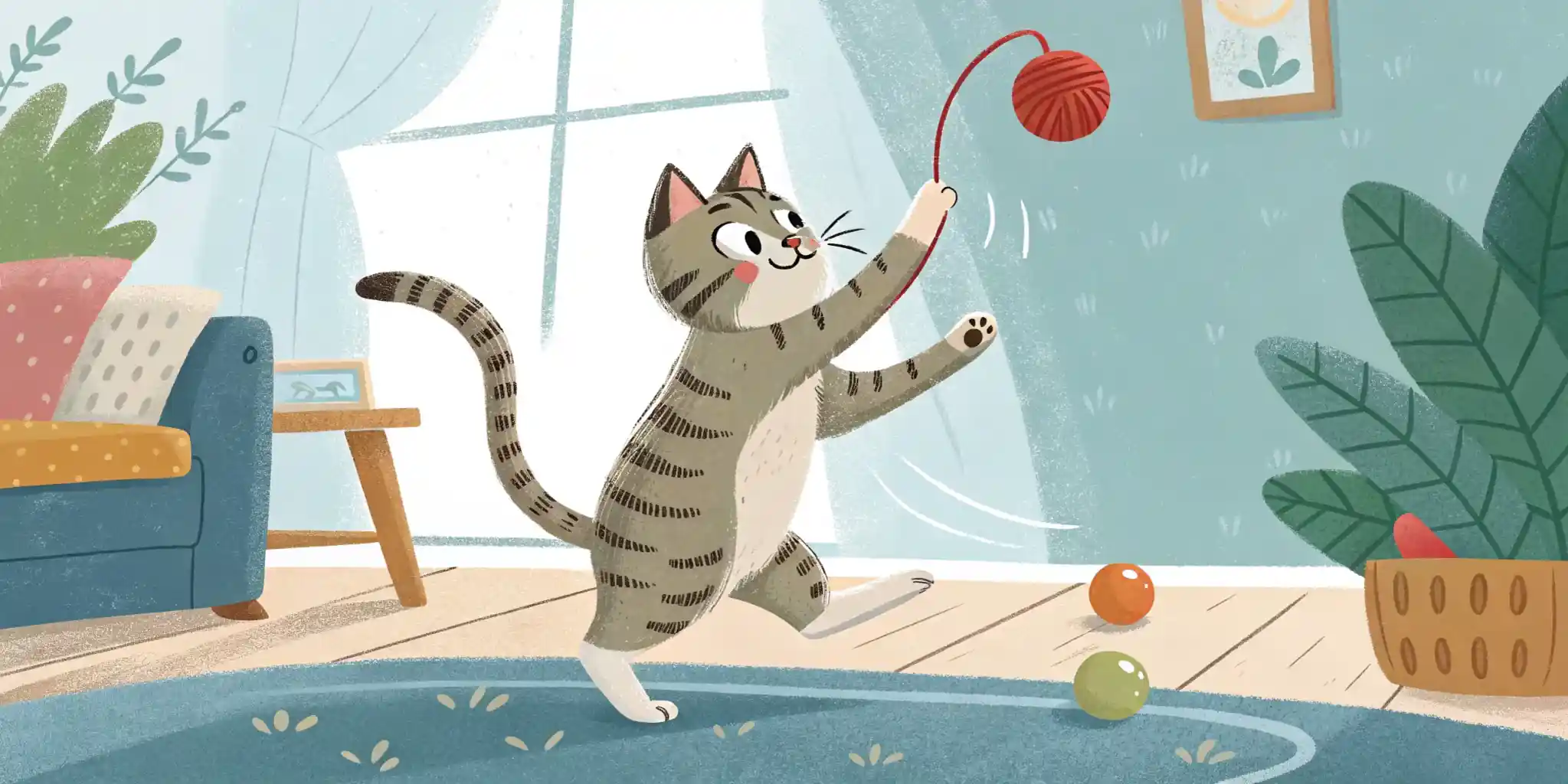 Image: A happy cat engaging in play, showcasing the benefits of environmental enrichment in reducing stress.
Image: A happy cat engaging in play, showcasing the benefits of environmental enrichment in reducing stress.
Helping Your Cat Through Specific Stressful Situations
- Moving: Gradually introduce your cat to their new home by confining them to one room initially. Provide familiar bedding, toys, and food. Once they seem comfortable, gradually allow them to explore the rest of the house.
- Vet Visits: Acclimate your cat to their carrier by leaving it out in the house with the door open. Place familiar bedding and toys inside. Reward your cat for entering the carrier with treats. Consider using Feliway spray in the carrier before vet visits.
- Thunderstorms or Fireworks: Provide a safe, quiet space for your cat to retreat to during thunderstorms or fireworks. Play calming music or white noise to help drown out the loud noises.
By being observant, understanding the causes of stress, and implementing appropriate solutions, you can help your cat live a happier, healthier, and more relaxed life. Remember, patience and consistency are key. It may take time for your cat to adjust to changes or overcome their anxieties, but with your love and support, they can thrive.
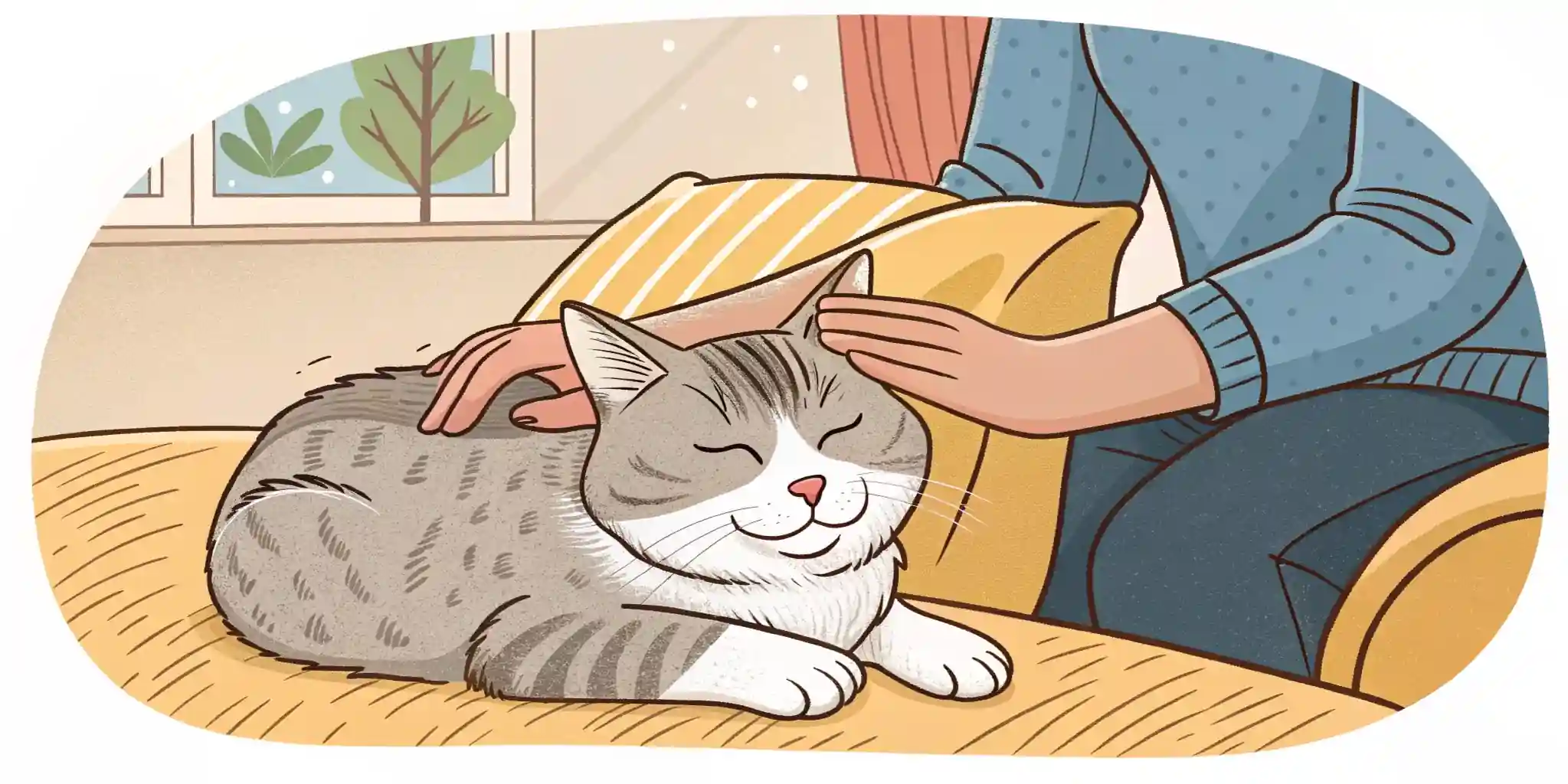 Image: A content cat receiving affection, highlighting the importance of human-animal bond in alleviating stress.
Image: A content cat receiving affection, highlighting the importance of human-animal bond in alleviating stress.
